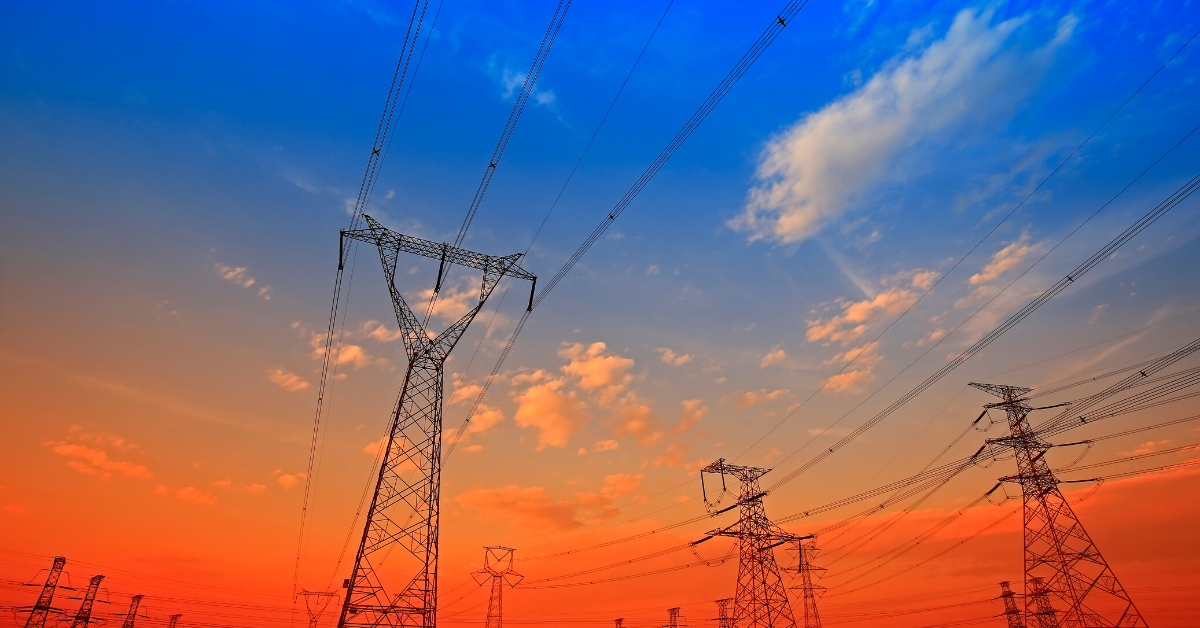How does the UK Energy Market work Part 1 – Energy Prices and entering the energy market
As the energy sector and the wider UK economy begins to resume some semblance of normality following the easing of the COVID-19 lockdown, we look at how the UK energy market works. In part 1, we explore how energy is generated, transported, sold and how you too can enter the energy supply market.
How is Energy Generated?
Before an energy supply company can begin to sell energy, it first needs to be generated.
In the UK, energy generation has changed dramatically over the last few years due to the introduction of new technologies and a drive towards cleaner energy.
Environmental and climate concerns have steered the government’s and industries' direction in recent years, as awareness of the impacts of human energy usage on the environment have been thrust into the spotlight.
The Energy Mix
Energy is produced in a wide variety of ways. Some are more effective than others whilst others are cleaner. This combination of methods and sources is called the energy mix.
In the past, most of the UK’s energy was generated via the burning of fossil fuels with the most notable one being coal. However, the shift towards cleaner sources has seen the rise of renewables such as wind, solar and hydropower.
Natural gas remains the biggest contributor to the energy mix alongside nuclear power, but this is likely to change as the government’s green revolution picks up the pace.
At times when electricity demand is high and renewable sources such as wind are not generating as much power, the UK also imports electricity from Europe via interconnector cables.
All Energy supply companies must provide their customers with information about the mix of fuels they use as well as the environmental impact they may have.
Read more: UK Energy Mix – The Types of production
How is energy transferred?
For electricity and gas to reach consumers it must be transported around the nation via the grid which manages the supply and demand from businesses, domestic properties, and other users such as hospitals.
Gas is transported via its own distribution network that works in a similar way to the electricity network.
Overseeing the distribution and ensuring the grids can cope is the National Grid.
Distribution Networks
These grids are operated via the transmission networks that act like roadways (think high-speed motorway) for energy and transport it across the country to where it’s needed. The other network is the distribution network (acts like a slower-paced local road) which is used to deliver the energy safely into homes and businesses.
Selling Energy
Companies that sell energy to consumers are called energy suppliers. The UK energy market is now a highly competitive one, as more companies have joined the fray to challenge the once dominant ‘Big Six’ suppliers.
In 2019, the government announced that it wanted to end what it called ‘rip-off’ pricing for consumers and so encouraged more competition into the market.
There is still a Big Six but the companies in it have varied over the last year as new challengers jockey for position.
The challenger companies also have some advantages over the bigger players as generally they have slimmer overheads, can perform well on customer service due to an easier to manage customer base and can often provide better deals and tariffs.
Entering the retail energy market
Entering the retail energy market is not as complicated as you might think. The growing number of independent energy suppliers is a testament to how starting an energy company has become far more accessible.
For information on how to start your own company read our guide - How to start an energy company
What affects energy prices?
Energy prices are impacted by a variety of factors including location, operating costs, and regulatory costs.
Wholesale energy prices make up a third of the average energy bill and these are determined by the costs of generating energy and how much demand there is. Gas prices and electricity rates are effected by the wholesale costs.
If the wholesale price rises, then suppliers also have to inflate the rates.
Geopolitical events can impact heavily on energy prices too. With most fossil fuels such as oil and gas coming from volatile regions prices can be impacted by conflicts and market concerns. Oil prices briefly plummeted to below zero for the first time ever during the pandemic but following action by the USA , OPEC and other oil producers the oil price has begun to rally.
The COVID-19 pandemic, for example, saw wholesale prices plummet to record lows due to lockdowns in much of the world causing sharp drops in demand for energy.
Energy prices are also affected by operating costs such as transport and maintenance, taxes, and government policies (such as environmental levies) and market drivers such as competition.
Energy companies buy wholesale energy weeks, months and sometimes years in advance as well as on the day to avoid any surprise price spikes. This method of purchasing should protect consumers from the volatility often seen in the international markets and ensures that enough energy has been purchased to ensure that the lights stay on.
The increasing use of renewable energy and the introduction of new energy policies has resulted in wholesale prices falling over the last few years.
Read more: Energy price forecast 2020 – The impacts of Coronavirus
In part 2 we'll looking at tariffs; energy billing and the regulations energy suppliers need to abide by.
Further Reading
How does the UK Energy Market work Part 2 – Tariffs and Energy Billing
Digital Only Energy Supplier announced by Centrica
Back to normality for the Energy Sector from July 1st and Ofgem says debt collecting can resume
Government announces plans to increase the speed of Smart meter rollout
Dyball Associates are proud to help new supply businesses successfully launch in the UK market.
Through our energy market consultancy services, and the software we’ve developed, we’re supporting new UK electricity and gas suppliers get set up and start supplying.
For more information on how to start and manage an energy company, get in touch with Dyball Associates today.







